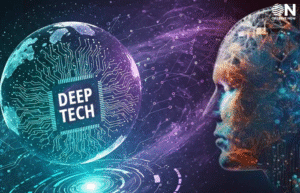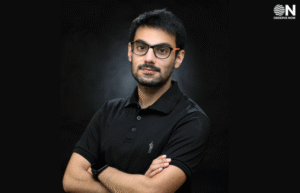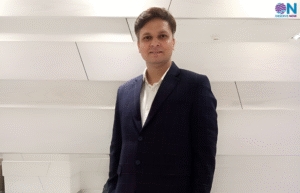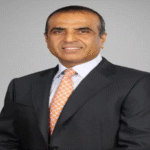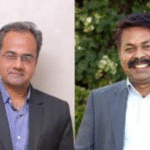Leading the Digital Revolution: L. Ramadevi Talks to ObserveNow About AI and Citizen-Centric Innovations

Implementing advanced technologies within a government framework has the potential to revolutionize public service delivery, streamline operations, and foster stronger citizen engagement. Governments worldwide are increasingly adopting a “digital by design” approach to integrate emerging technologies such as artificial intelligence, big data, and advanced analytics into their systems. These advancements not only improve efficiency but also enhance transparency and accountability, building trust with the public.
The integration of AI and other emerging technologies presents both opportunities and challenges for government services. While these technologies can personalize citizen engagement, automate routine tasks, and provide real-time insights, they also require careful handling of data privacy and security concerns. By prioritizing citizen-centric solutions, maintaining open communication, and leveraging technology responsibly, governments can transform their operations and meet the evolving needs of their constituents in a rapidly changing digital landscape. In this regard Shivani Babbar, ObserveNow interacted with L. Ramadevi, Director, Emerging Technologies, Department of Information Technology, Electronics & Communications, Government of Telangana.
Below are few edited excerpts from the interview:
- Can you provide an overview of your experience in implementing emerging technologies within government frameworks?
As the Director of the Emerging Technologies (ET) Wing within the Information Technology, Electronics & Communications (ITE&C) Department of Telangana, I have had a diverse set of experiences working across multiple fronts:
- Formulating and executing policy frameworks for emerging technologies like Artificial Intelligence, Blockchain, Cloud Computing, Drones, Robotics, and others to create a conducive ecosystem for their growth and adoption in the state.
- I lead the establishment and operations of dedicated Centers of Excellence (CoEs) for AI (Telangana AI Mission – T-AIM), Cybersecurity, Additive Manufacturing, and E-Waste Management to implement the policy frameworks.
- My responsibility also includes driving collaborations with industry players, startups and academia to develop solutions leveraging emerging technologies for social good and improve citizen services
- I also conceptualise and oversee the execution of flagship initiatives like the AI-powered Agricultural Data Exchange, Saagu Baagu, wildlife monitoring using AI, Intelligent Solutions for Road Safety through Technology and Engineering (iRASTE), and projects in areas like fintech, healthtech, and climate tech
- Representing the state at national and international forums, fostering partnerships, and advocating for the ethical and responsible adoption of emerging technologies has also been a part of my job.
2. Considering your significant contributions to AI and emerging technologies, particularly within the government, how do you see your role as a woman leader in the tech sector inspiring and influencing the next generation of women professionals?
As a woman leader in the tech sector, particularly within the government, I see my role as an opportunity to inspire and influence the next generation of women professionals in several ways:
- Firstly, my journey and contributions in AI and emerging technologies demonstrate that women can thrive and lead in these traditionally male-dominated fields. By breaking stereotypes and showcasing that women can hold significant and impactful positions, I hope to encourage more women to pursue careers in technology.
- I actively advocate for gender diversity and inclusion within our initiatives and policy frameworks. This involves creating platforms and opportunities specifically aimed at supporting and mentoring young women in tech. For instance, through our various Centers of Excellence and collaborations with academia and industry, we ensure that women are given equal opportunities to contribute, learn, and lead projects.
- Furthermore, I believe in the importance of visibility and representation. By participating in national and international forums, and through the recognition of our projects, I aim to highlight the contributions of women in tech.
- Mentorship is another critical aspect – I strive to mentor and guide young women professionals, providing them with the support and resources they need to succeed. By sharing my experiences, challenges, and successes, I hope to offer valuable insights and encouragement to those starting their careers.
- Ultimately, my goal is to create an environment where young women feel empowered to innovate, lead, and make significant contributions to the tech industry. Through advocacy, mentorship, and by serving as a role model, I aim to pave the way for a more inclusive and diverse tech sector.
3. How is the government ensuring the privacy and protection of citizens’ data in the digital era? Are there policies or regulations in place to safeguard sensitive information and maintain trust in digital services?
The department is taking several proactive measures to address concerns related to data privacy and sustainability.
- The department has spearheaded efforts to create a trustworthy agricultural data-sharing ecosystem through Agriculture Data Management Framework to safeguard farmer data privacy through salient guidelines such as notice, consent, purpose driven data sharing, responsibility and accountability.
- Additionally, the department is collaborating with UNESCO to implement AI for Ethics recommendations to understand the readiness of state in responsible AI development and deployment.
- Furthermore, the department’s membership in the LITD 30 of the Bureau of Indian Standards for the Artificial Intelligence Committee allows it to contribute valuable insights and expertise to shape global policies that prioritize ethical and sustainable AI practices.
- Telangana’s Agricultural Data Exchange (ADeX), is India’s first digital public infrastructure (DPI) for the agriculture sector. Developed collaboratively by the Government of Telangana, the World Economic Forum, and the Indian Institute of Science (IISc), ADeX democratizes access to data. This platform ensures data privacy by implementing robust encryption and access controls, allowing only authorized entities to access sensitive information. Farmers’ data is anonymized and aggregated, protecting individual privacy. The platform’s open architecture and adherence to industry standards foster interoperability, enabling integration with other systems and promoting long-term sustainability.
4. What do you see as the biggest opportunities and challenges in leveraging emerging technologies to improve government services?
Leveraging emerging technologies presents immense opportunities to enhance government services, especially in promoting social good and innovation.
- For instance, through projects like ‘Saagu Baagu’ and DiCRA, we’re using AI to empower farmers with better crop management tools and climate-resilient farming techniques. This not only boosts productivity and reduces costs but also ensures food security and sustainable agricultural practices.
- The iRASTE initiative, recognized nationally, employs technology to enhance road safety through real-time driver alerts and collision avoidance systems. By leveraging AI in transportation, we’ve significantly reduced road accidents, demonstrating the transformative impact of technology on public safety.
- AI is revolutionizing wildlife conservation efforts by automating insights from forest camera traps and soon implementing real-time monitoring systems. This helps in protecting biodiversity and ensuring the sustainable management of natural resources.
- Projects like eVoting and ‘Medicine from Sky’ showcase innovation in citizen-centric services. The eVoting app could potentially transform voting processes, ensuring greater participation and transparency. Meanwhile, ‘Medicine from Sky’ uses drones to deliver vaccines swiftly, particularly to remote areas, improving healthcare accessibility.
- Initiatives such as the T-Chit project in Fin-tech demonstrate how blockchain technology enhances transparency and reduces fraud in financial transactions, benefiting citizens directly.
These efforts have not only garnered national and international acclaim but also underline our commitment to using technology for social good and innovation in government services.
Some of the biggest challenges faced during the adoption of technologies like AI, Blockchain, or IoT in public services include:
- Building trust and confidence with government stakeholders regarding the transparency and accountability of technology-driven solutions.
- Overcoming resistance to change and introducing a culture of innovation within government agencies has been a challenge since there are already existing processes and workflows that are followed.
- To secure enough funding and resources for the successful implementation and scaling of pilot projects across various domains has been a challenge.
- To address these challenges, we are organizing workshops, seminars, and awareness programs for government departments and seeking public-private partnerships to fund the projects.
The integration of advanced technologies within government frameworks is not just about adopting tools but about reimagining governance to serve citizens better. Through pioneering initiatives like AI-powered agricultural platforms, blockchain-driven transparency in financial services, and drone-enabled healthcare delivery, the Telangana government is setting a benchmark for innovation in public service. As shared by L. Ramadevi in her conversation with ObserveNow, these efforts underscore the importance of citizen-centric solutions, ethical data practices, and collaborative partnerships. By overcoming challenges and leveraging opportunities, governments can lead the way toward a digitally empowered future, building trust and fostering stronger citizen engagement in a rapidly evolving world.




